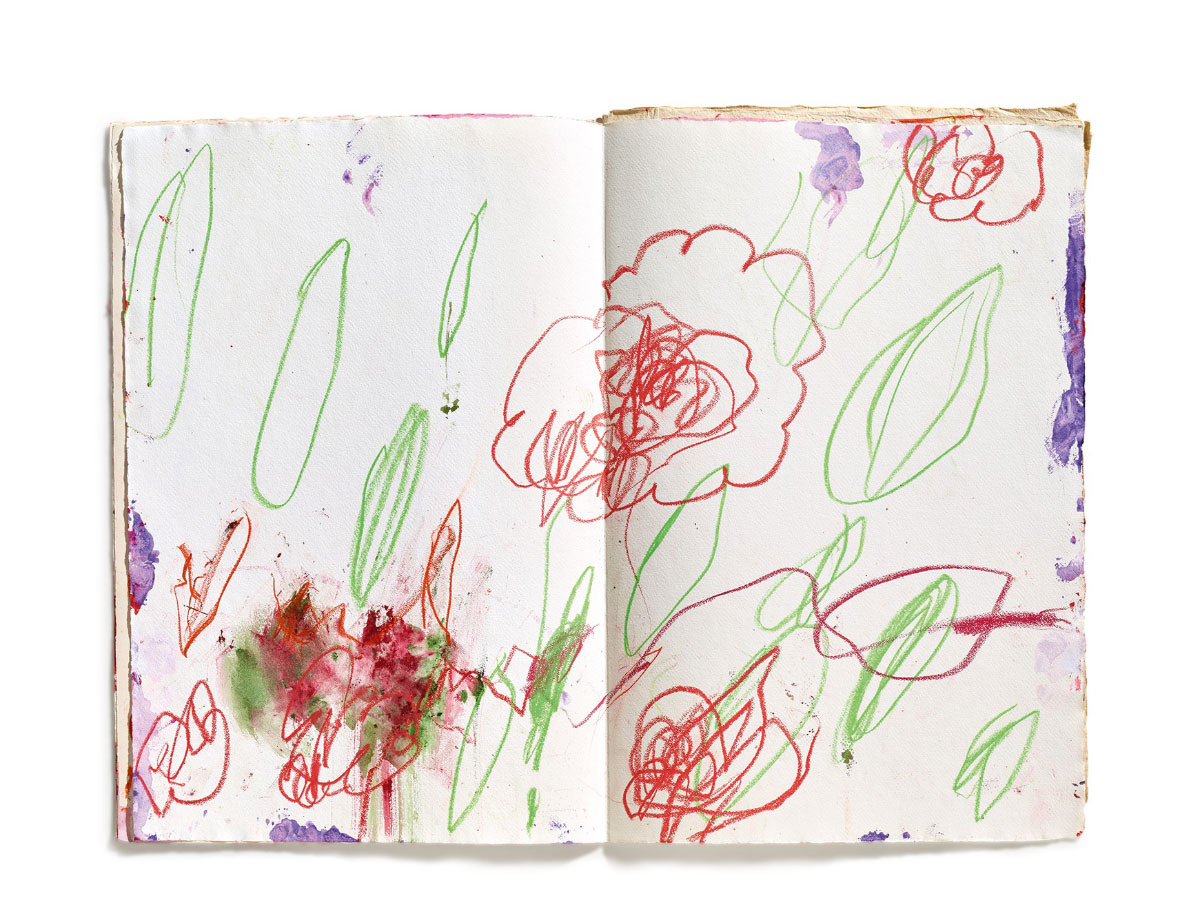Seeing people clearly
Head of people operations for the entire friend group
This was either painted by Cy Twombly or my two-year-old and I’m not going to tell you who
In September, I asked my friend Jakob to show me how he uses Tinder. Jakob has something of a Protestant work ethic when it comes to swiping; he had amassed 327 matches. But, he said, every single one was boring.
Like most dating apps, Tinder is a filter game. Its core game loop is bean sorting: you swipe right and left to decide which pile the beans belong to. Jakob said that at the swiping stage, he only applied the most rudimentary filters, since, “there is no point thinking too hard until you know if it is a match.” But there were other filters. Plenty of them. He had a rule of thumb that he only talked to girls who wrote to him first (to make sure they had agency). And the chat conversations were filters and the dates were filters and the sex, too. One sieve placed after another, to make sure none of the bad beans made it into the good pile.
The question repeated was, “Is this the one?”
Here’s another way of thinking about making relationships. I’m not sure it is better, but it is closer to my heart.
Graham Duncan has an essay called “What’s going on here, with this human?” It is not about dating—it is about evaluating if someone is a good hire. But that is more or less the same thing. Hiring, like dating, is about crafting relationships and putting the right person on the right team.
The typical way of recruiting is to play an adversarial game. The candidate tries to pretend to be one of those people whose raison d’être is to be a team player in the sales department. The interviewer tries to bust them. “Well then, why did you have to leave your last employer after only two months?” Much like how my friend uses Tinder, this is a game of filters.
Duncan takes this approach and turns it inside out. Instead of asking if the candidate is right for the role, he asks: what role would be ideal for them? Given their character, their strengths and weaknesses, where should they work? With what, and with whom?
I try to imagine myself as head of people operations for the entire hedge fund or private equity ecosystem, that I’m agnostic as to where they should sit and just trying to help them get to the best spot.
[. . . ] rather than going in with the purpose of determining whether someone is an A player in a binary, Manichean way. I prefer to imagine that I’m trying to find the candidate the best possible job for them; it may be the job I had in mind, or something else altogether.
Framing the problem in this way makes you focus on seeing the person. Not the person in relationship to your needs, but the person in themselves.
When you see people clearly, you see the transcript of their conversation with reality up until that moment of your meeting, and you glimpse the horizon that stretches out ahead of them. And then sometimes you can help them overhear themselves and overhear what the world wants from them, whether or not that includes working in the role that you had initially imagined for them.
If you approach people with this kind of open-ended curiosity, you never know where you will end up. You might go on a Tinder date and discover, for instance, that what you should really do is start a violin-based death metal band together called Leper’s Kiss.
Or maybe you realize that there is indeed the possibility of romance? Leaving the bar, you lean close and say, “This was a lovely night, dear. What you said about Derrida really made me think. And what I concluded was that you should date this guy I met four weeks ago at a psychometrics conference.”
(I’ve never been on a Tinder date so perhaps you shouldn’t take advice from me. But I think it is the right attitude.)
I think we would all be happier if spent more time introducing our friends to each other; if, to borrow Duncan’s phrase, we imagined that we are “head of people operations for the entire hedge fund ecosystem”; if we focused less on our criteria and more on seeing people, letting our curiosity steer the relationships where they want to go.
One day, doing this, Jakob, I bet you will meet someone who divides your life in two. But when this happens, it will, in my experience, look almost nothing like you thought it would. On Tinder, you could have swiped right past it.
Warmly,
Henrik



“This was a lovely night, dear. What you said about Derrida really made me think. And what I concluded was that you should date this guy I met four weeks ago at a psychometrics conference.” This is incredible dialogue for a movie I didn't know I wanted to see.
This was such a good read! I've been helping a friend with her dating profile and also had a conversation about dating apps on Notes recently. Someone mentioned that with online dating you start off on the assumption that “I'm only talking to you because I want a relationship” instead of “I'm talking to you because I want to”, and it made me think about how a lot of people on dating apps go into it looking for a romantic relationship and not a person. I like your approach, being head of people operations for the entire friend group, and redirecting people once you see where they could fit in. Lots of cool people one miss out on by swiping.